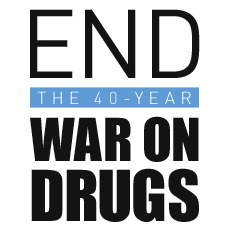
June 2011 marks the 40th anniversary of President Richard Nixon's declaration of a "war on drugs" — a war that has cost roughly a trillion dollars, has produced little to no effect on the supply of or demand for drugs in the United States, and has contributed to making America the world's largest incarcerator. Throughout the month, check back daily for posts about the drug war, its victims and what needs to be done to restore fairness and create effective policy.
Michele Convie was convicted of her last felony drug offense in 1986. Twenty years later, after exhausting all other means, she decided to file a lawsuit challenging the State of based on those drug convictions, with the ACLU representing her. Sadly, the facts that Michele had successfully completed a drug rehabilitation program, developed stronger ties with her family, and landed a job as the director of a shelter for women and children in Tucson were irrelevant to the courts, which failed to restore Michele's right to vote. As far as the judicial system and the State of Arizona were concerned, the drug crimes Michele committed two decades ago would still haunt her, still limit her ability to fully participate in her community as an engaged voter. As a result, Michele went from being a target of the war on drugs to one of its many victims.
Across the country, people with felony — and sometimes even misdemeanor — convictions are subject to an array of disfranchisement laws that prevent them from voting, sometimes for life. More than 5 million Americans are barred from casting a ballot as a result, and countless more are de facto disfranchised due to confusion about and improper administration of voter disfranchisement policies.
For Michele and millions of others, losing the right to vote following a criminal conviction means that their political voices are silenced, and that social and economic concerns of those who have battled drug use continue to go unheard. It is a vicious cycle: the policies of the "war on drugs" criminalize even low-level drug offenses; many individuals caught up in this net are squeezed out of the electorate and their fate is placed in the hands of people who have not been elected with their input and their concerns in mind. Moreover, many decisionmakers continue to push the policies of the "war on drugs" that, time has demonstrated, make matters worse by failing the people most in need.
If the goal is to overcome the public health problem of drug abuse, states should involve people with past convictions in their communities, not shut them out. Engaging people in the political process not only strengthens our democracy, it also enhances public safety. Indeed, the has stated that "voting is an integral part of community participation in democratic societies … [and] disenfranchisement laws work against the successful re-entry of offenders." that people with past convictions who vote are significantly less likely to be re-arrested than those who don't vote.
Since 1997, for people with past convictions. More states should follow in their footsteps.
In addition, the ACLU and other groups are leading the charge for passage of the in Congress, a law that would allow people to vote in federal elections upon release from any prison. With over 2 million people in prison and over 5 million people under some sort of correctional supervision such as probation or parole, many of them for drug-related offenses, it is well past time to reform our country's drug policies. Re-enfranchising people convicted of drug offenses is probably one of the easiest, cheapest, and most sensible things our federal and state governments could do towards actually winning this so-called war.
Learn more about the war on drugs: Sign up for breaking news alerts, , and .
